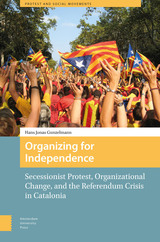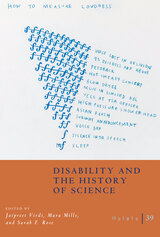137 books by Justin and 4
start with B
137 books by Justin and 4
137 books by Justin
4 start with B start with B
4 start with B start with B
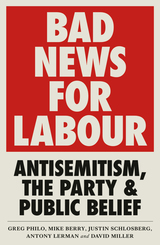
Bad News for Labour
Antisemitism, the Party and Public Belief
Greg Philo
Pluto Press, 2019
Jointly written by five leading voices on the topic, this book looks at the contentious issue of antisemitism in the Labour Party today, and sets out ways of addressing the problem while maintaining the integrity of the organisation. The first part of the book includes original material on public beliefs about antisemitism in the Labour Party, and the kinds of problems this poses regarding voting intentions and demoralization of the membership. The writers then investigate the institutional problems and policy decisions that prevented a coherent and well-planned response from the party, and how Labour can rectify this today. The book progresses to explore in depth the coverage of the issue in mainstream media outlets, and the partial accounts presented to the public. The writers focus on the debates around the IHRA definition, and the accusations made against David Miller which were eventually dismissed and set an important precedent. At the end of the book, Mike Berry provides a helpful chronological account of the arguments surrounding this issue from the beginning of Corbyn's leadership to the present.
[more]
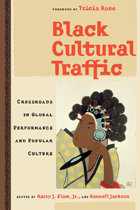
Black Cultural Traffic
Crossroads in Global Performance and Popular Culture
Edited by Harry J. Elam, Jr. and Kennell Jackson
University of Michigan Press, 2005
"A shrewdly designed, generously expansive, timely contribution to our understanding of how 'black' expression continues to define and defy the contours of global (post)modernity. The essays argue persuasively for a transnational ethos binding disparate African and diasporic enactments, and together provide a robust conversation about the nature, history, future, and even possibility of 'blackness' as a distinctive mode of cultural practice."
--Kimberly Benston, author of Performing Blackness
"Black Cultural Traffic is nothing less than our generation's manifesto on black performance and popular culture. With a distinguished roster of contributors and topics ranging across academic disciplines and the arts (including commentary on film, music, literature, theater, television, and visual cultures), this volume is not only required reading for scholars serious about the various dimensions of black performance, it is also a timely and necessary teaching tool. It captures the excitement and intellectual innovation of a field that has come of age. Kudos!"
--Dwight A. McBride, author of Why I Hate Abercrombie & Fitch
"The explosion of interest in black popular culture studies in the past fifteen years has left a significant need for a reader that reflects this new scholarly energy. Black Cultural Traffic answers that need."
--Mark Anthony Neal, author of Songs in the Key of Black Life
"A revolutionary anthology that will be widely read and taught. It crisscrosses continents and cultures and examines confluences and influences of black popular culture -- music, dance, theatre, television, fashion and film. It also adds a new dimension to current discussions of racial, ethnic, and national identity."
--Horace Porter, author of The Making of a Black Scholar
[more]
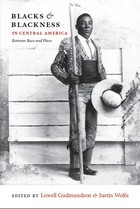
Blacks and Blackness in Central America
Between Race and Place
Lowell Gudmundson and Justin Wolfe, eds.
Duke University Press, 2010
Many of the earliest Africans to arrive in the Americas came to Central America with Spanish colonists in the sixteenth and seventeenth centuries, and people of African descent constituted the majority of nonindigenous populations in the region long thereafter. Yet in the development of national identities and historical consciousness, Central American nations have often countenanced widespread practices of social, political, and regional exclusion of blacks. The postcolonial development of mestizo or mixed-race ideologies of national identity have systematically downplayed African ancestry and social and political involvement in favor of Spanish and Indian heritage and contributions. In addition, a powerful sense of place and belonging has led many peoples of African descent in Central America to identify themselves as something other than African American, reinforcing the tendency of local and foreign scholars to see Central America as peripheral to the African diaspora in the Americas. The essays in this collection begin to recover the forgotten and downplayed histories of blacks in Central America, demonstrating the centrality of African Americans to the region’s history from the earliest colonial times to the present. They reveal how modern nationalist attempts to define mixed-race majorities as “Indo-Hispanic,” or as anything but African American, clash with the historical record of the first region of the Americas in which African Americans not only gained the right to vote but repeatedly held high office, including the presidency, following independence from Spain in 1821.
Contributors. Rina Cáceres Gómez, Lowell Gudmundson, Ronald Harpelle, Juliet Hooker, Catherine Komisaruk, Russell Lohse, Paul Lokken, Mauricio Meléndez Obando, Karl H. Offen, Lara Putnam, Justin Wolfe
[more]

Bridging Worlds
Emerging Mode Ls And Practices Of
Raymond Pun
Assoc of College & Research Libraries, 2016
READERS
Browse our collection.
PUBLISHERS
See BiblioVault's publisher services.
STUDENT SERVICES
Files for college accessibility offices.
UChicago Accessibility Resources
home | accessibility | search | about | contact us
BiblioVault ® 2001 - 2024
The University of Chicago Press



